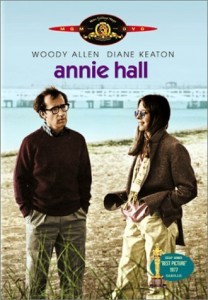 Midnight in Paris is a perfect movie, one I’ve watched dozens of times since it was released in 2011.
Midnight in Paris is a perfect movie, one I’ve watched dozens of times since it was released in 2011.
It is my second-favorite film by Woody Allen, second only to Annie Hall.
The Academy-Award winning script (Best Original Screenplay) is tight, witty, clever, and intelligent.
The casting is exceptional, although at first I couldn’t see Owen Wilson as Woody Allen, the stammering, gesturing writer looking for inspiration. He eventually grew on me.
Even the soundtrack is outstanding – so much so that I bought it as soon as it became available.
Midnight in Paris combines everything I love in a movie – including the kind of magic that could transport someone back in time…in this case, Paris in the 1920s, the city filled with ex-pats like Ernest Hemingway, Scott and Zelda Fitzgerald, Gertrude Stein, and Cole Porter. Other characters making an appearance are Henri De Toulouse-Lautrec, Pablo Picasso, Salvador Dali, Man Ray, Matisse, Gauguin, Degas, and others.
The cast is remarkable:
Owen Wilson … Gil
Rachel McAdams … Inez
Kurt Fuller … John
Mimi Kennedy … Helen
Michael Sheen … Paul
Alison Pill … Zelda Fitzgerald
Tom Hiddleston … F. Scott Fitzgerald
Marion Cotillard … Adriana
Corey Stoll … Ernest Hemingway
Kathy Bates … Gertrude Stein
Adrien Brody … Salvador Dalí
Tom Cordier … Man Ray
Léa Seydoux … Gabrielle
Standout performances were turned in by Tom Hiddleston as Scott Fitzgerald, Alison Pill as Zelda Fitzgerald, Corey Stoll as Hemingway (possibly the greatest performance in the film), Adrien Brody as Dali (the second best performance), and Marion Cotillard as Adriana, one of the sexiest woman ever to Continue reading



